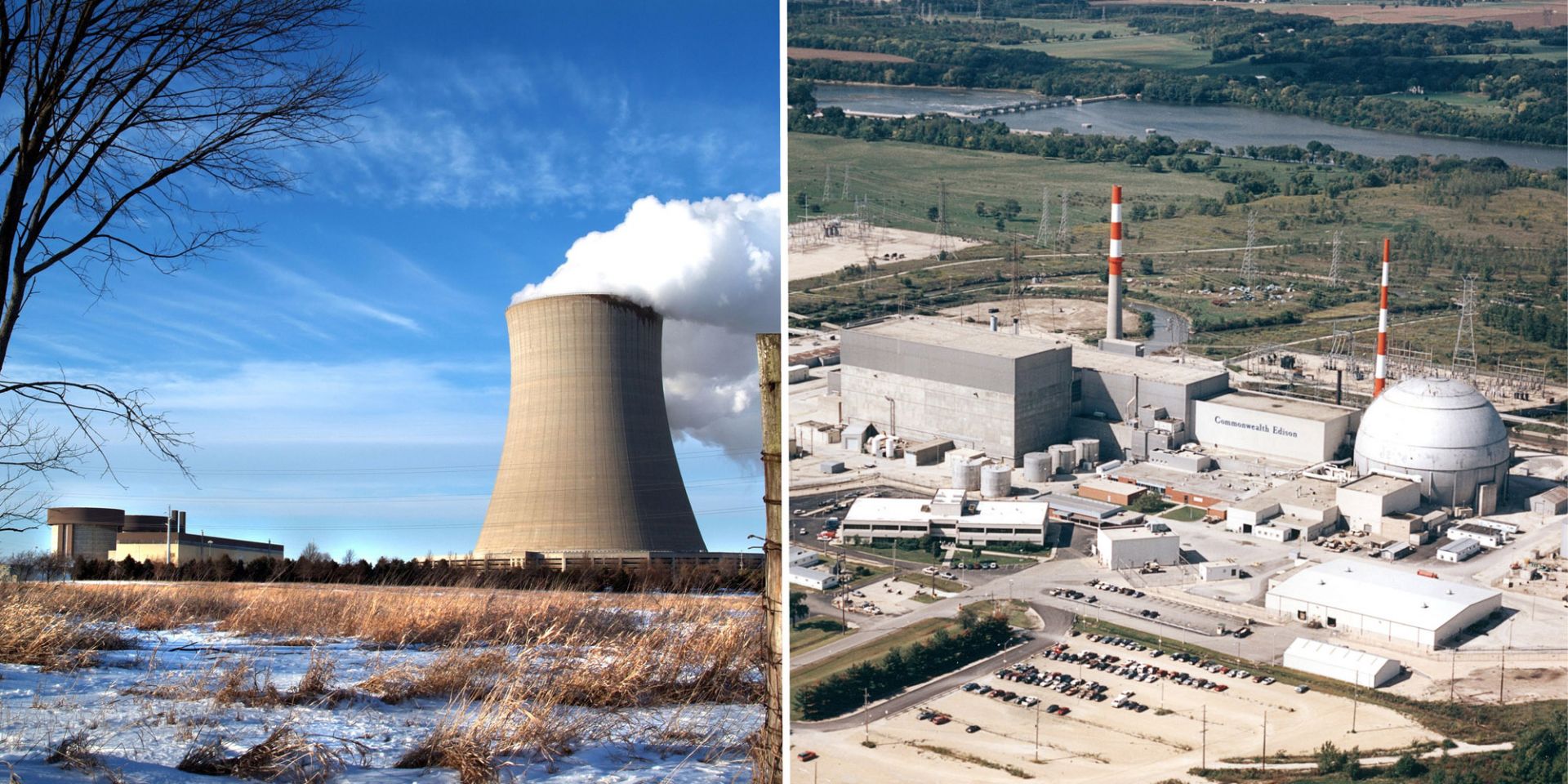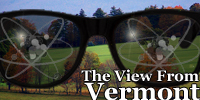Byron (left) and Dresden (right) may be looking at early retirement if Springfield doesn't pass an energy package before the fall of 2021.
On August 27, I stood in front of small groups of socially distanced employees at our Dresden Generating Station in Illinois, announcing plans for the premature retirement of the nuclear facility next fall. A hundred miles away, our chief operating officer was delivering a similar, equally somber announcement to employees at the Byron Station.
Despite being among the safest, most efficient, and reliable nuclear plants in the nation, Dresden and Byron face revenue shortfalls in the hundreds of millions of dollars because of declining energy prices and market rules that allow fossil fuel plants to underbid clean merchant nuclear resources in the PJM capacity auction, even though there is broad public support for sustaining and expanding clean energy resources to address the climate crisis.



 Communities that host nuclear power plants face “swift and severe” economic and social impacts following a plant’s closure, according to a report by the Nuclear Decommissioning Collaborative that was released on October 12. The free, 61-page report,
Communities that host nuclear power plants face “swift and severe” economic and social impacts following a plant’s closure, according to a report by the Nuclear Decommissioning Collaborative that was released on October 12. The free, 61-page report,
 ANS member Dr. Christopher Morrison was a recent guest on
ANS member Dr. Christopher Morrison was a recent guest on  Shortly after 11 a.m. on Tuesday, May 7, 2013, the operators at Dominion Resources' Kewaunee nuclear power plant opened its output breaker, disconnecting the turbine generator from the grid for the last time after just under 40 years of operation. Shutdown of the reactor followed, and the plant entered what for some is an uncertain (even if pre-ordained) future-a long-term storage period, followed eventually after many years by the complete dismantling and removal of the plant.
Shortly after 11 a.m. on Tuesday, May 7, 2013, the operators at Dominion Resources' Kewaunee nuclear power plant opened its output breaker, disconnecting the turbine generator from the grid for the last time after just under 40 years of operation. Shutdown of the reactor followed, and the plant entered what for some is an uncertain (even if pre-ordained) future-a long-term storage period, followed eventually after many years by the complete dismantling and removal of the plant. The weekly Carnival is the collective voice of blogs by many of the Internet's foremost nuclear experts and advocates, who continue each week to tell the story of nuclear energy around the World Wide Web.
The weekly Carnival is the collective voice of blogs by many of the Internet's foremost nuclear experts and advocates, who continue each week to tell the story of nuclear energy around the World Wide Web. When the heat released by nuclear fission is used in a steam plant to produce mechanical power, the second law of thermodynamics dictates that a large part of the heat must be rejected to the environment. Most land-based nuclear plants reject heat by using cooling water from a river or ocean.
When the heat released by nuclear fission is used in a steam plant to produce mechanical power, the second law of thermodynamics dictates that a large part of the heat must be rejected to the environment. Most land-based nuclear plants reject heat by using cooling water from a river or ocean.